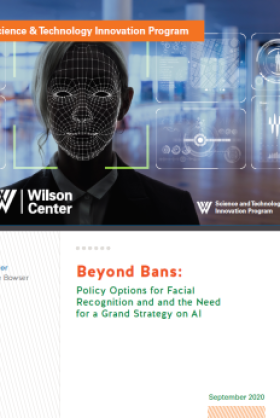Beyond Bans: Policy Options for Facial Recognition and the Need for a Grand Strategy on AI



Thanks to advances in Artificial Intelligence (AI) and Machine Learning (ML), long-term issues of bias in criminal justice have been brought to the fore. Many concerns center around the use of facial recognition technologies used in police-worn body cameras and other surveillance technologies. For example, both university and government research studies have found evidence of algorithmic racial bias towards darker-skinned individuals as well as performance discrepancies based on other demographic effects.
Addressing the use of facial recognition in law enforcement might seem like a powerful first step. But, as demonstrated by the prevalence of bias in other criminal justice processes, addressing facial recognition in isolation will not help us contend with broader systemic issues around justice and race. Similarly, while bias is an important ethical concern at the forefront of the facial recognition policy debate, concerns such as privacy also need attention.
Despite these considerations, the potential for AI and ML to bring economic and social benefits is unmatched by any technology since the Internet. Current executive and legislative activities are accelerating AI innovation and beginning to create checks and balances. Recognizing the current pace of innovation, there is an urgent and compelling opportunity to move beyond bans to proactively explore a grand strategy or national action plan for AI. Such a strategy should include an ethical framework for AI that begins with high-level principles and becomes progressively more concrete.


The Science and Technology Innovation Program (STIP) serves as the bridge between technologists, policymakers, industry, and global stakeholders. Read more


